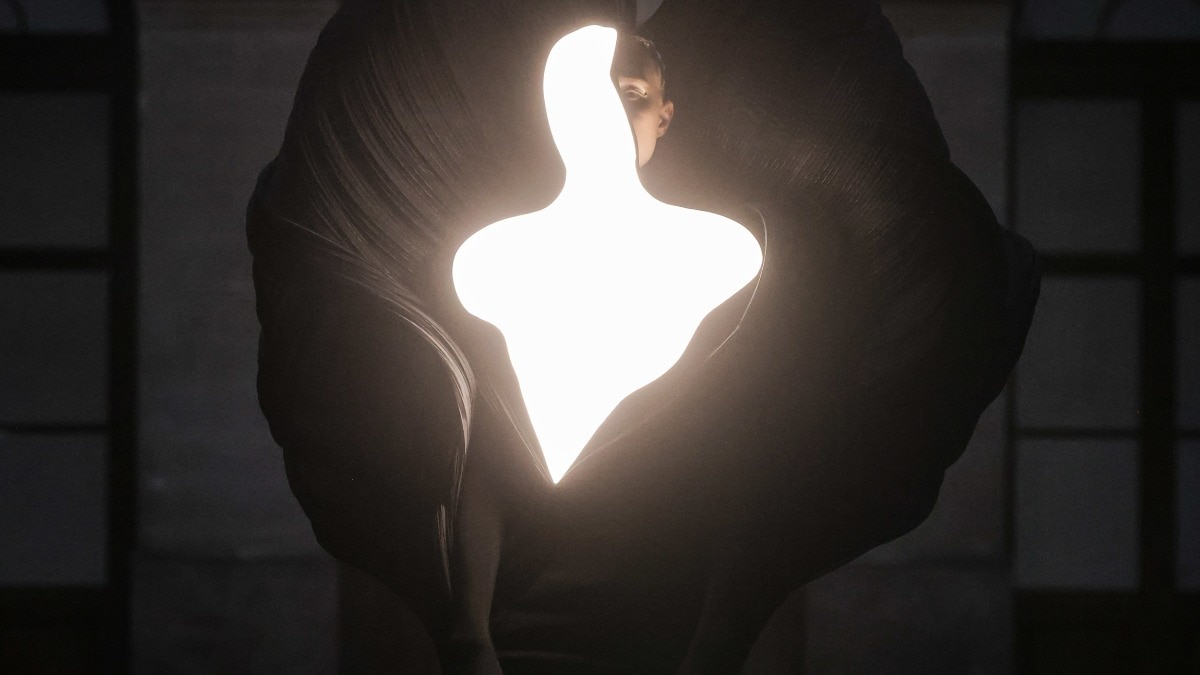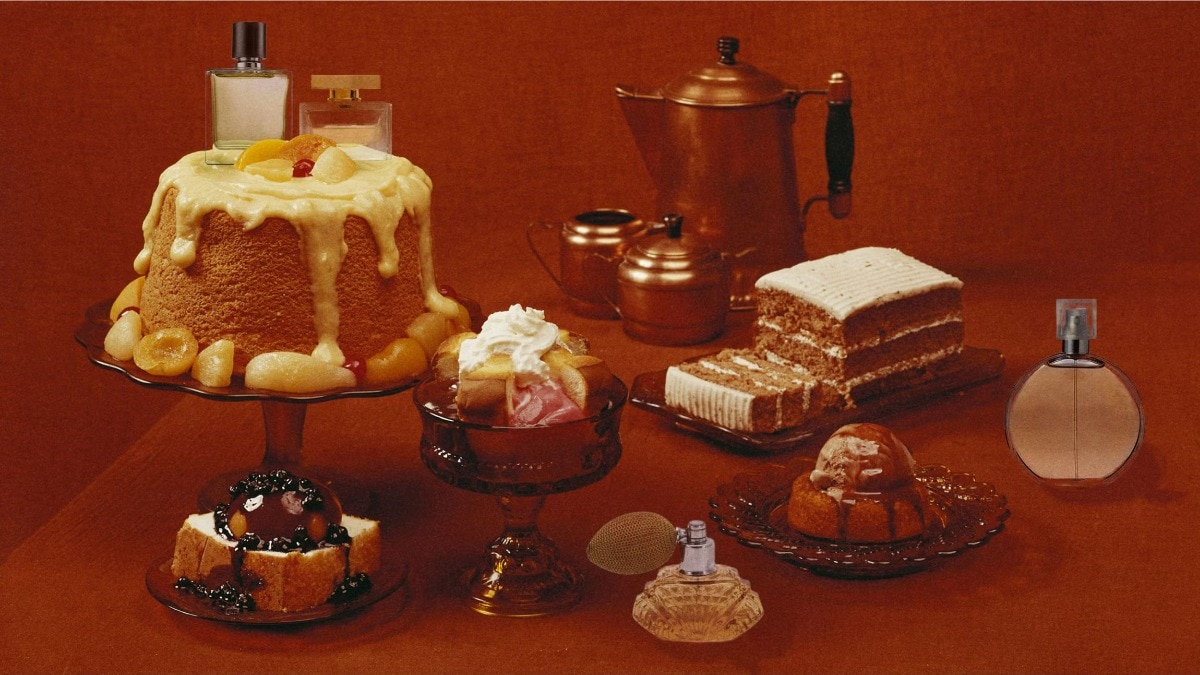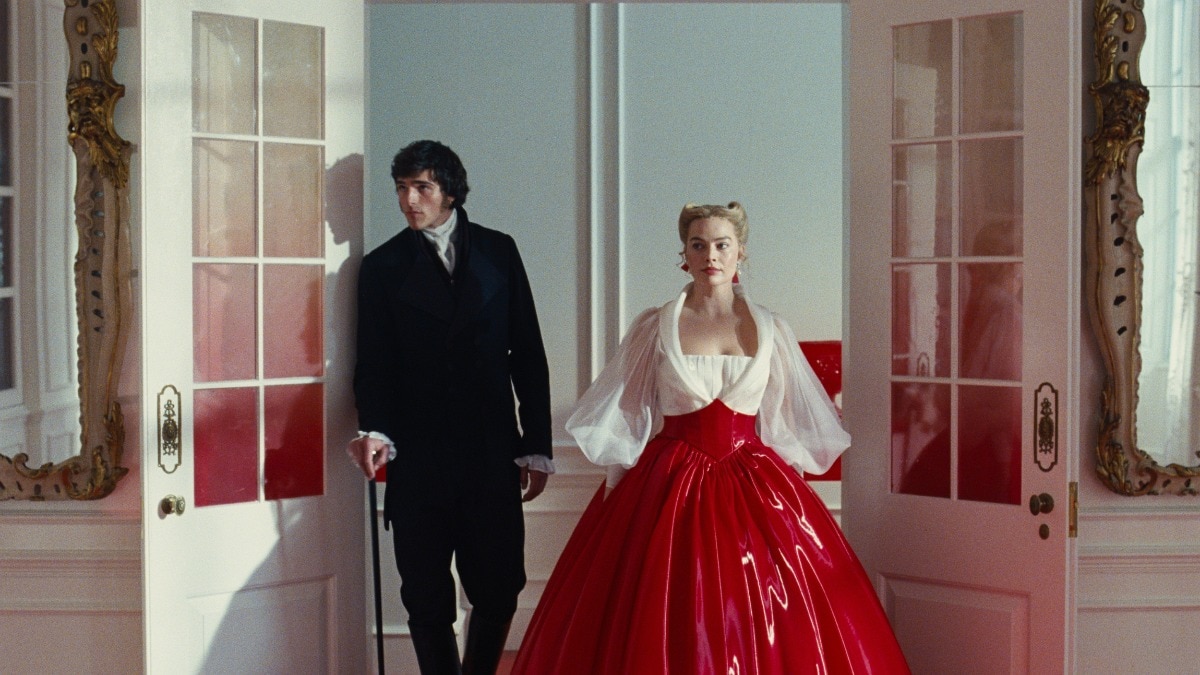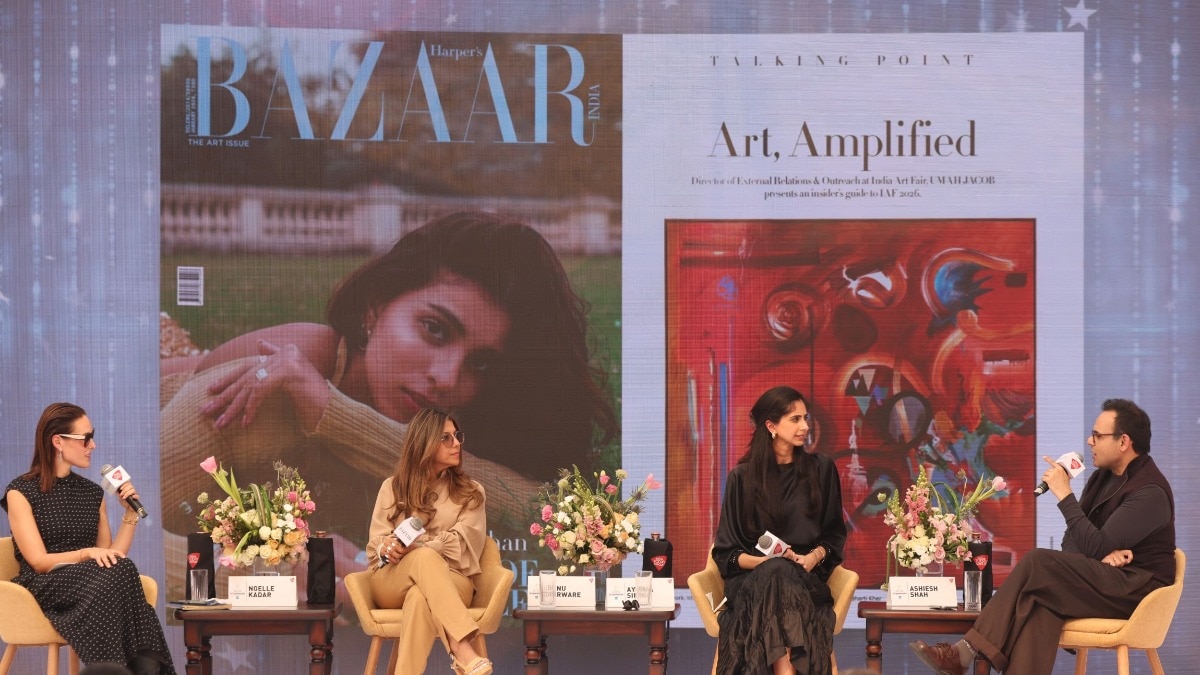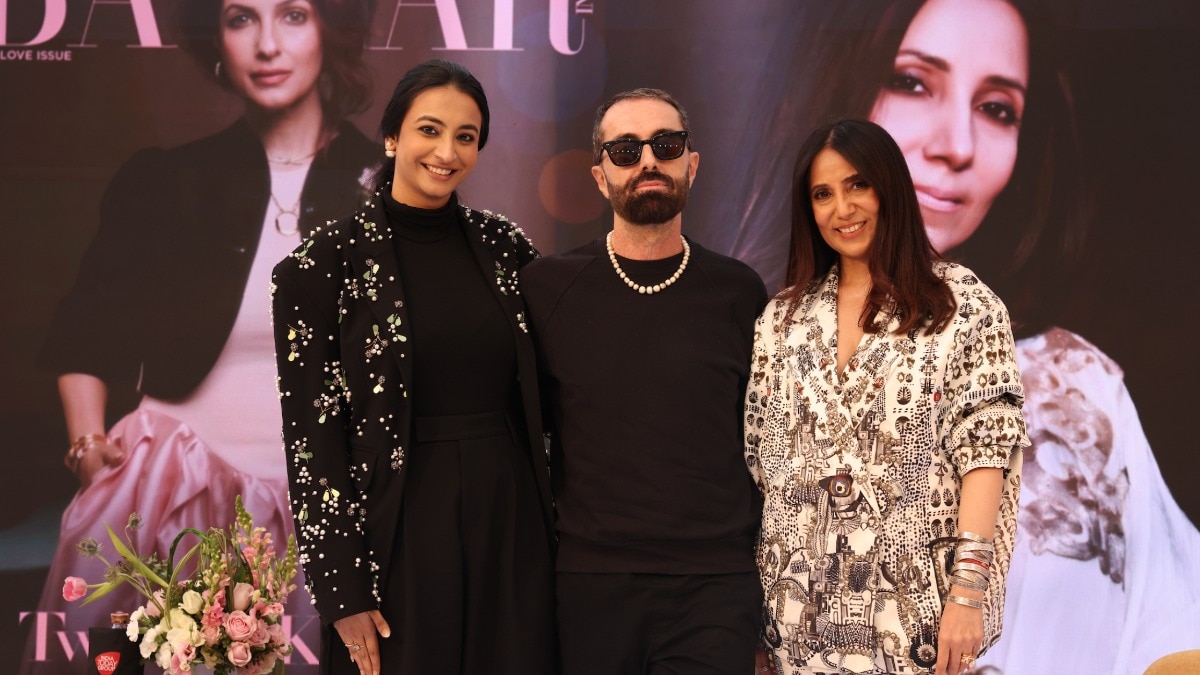
Trinetra Haldar Gummaraju on her dream role and how acting helped her embrace femininity
The August Bazaar cover girl talks about settling into womanhood, overcoming challenges, and finding joy in self-expression.


It’s February 7, 2019. Twenty-two-year-old Trinetra Haldar Gummaraju films herself from a hospital bed in Bangkok. Fighting through an anaesthesia-induced post-op trance, she tells the camera, “It’s done. It’s actually done.” The pride in her voice and the bubbling relief it houses has nothing against the 12-hour-long procedure she’s just been through. “I feel tipsy almost. My brain is not communicating super effectively with my mouth. It’s taking a while to form sentences. My throat is fucked. My chest feels like an elephant is sitting on it,” the video continues, “but it’s done. No more penis. No more tucking. No more stuffing. It’s quite a relief. Painful…painful but such a relief.” This video series on YouTube documenting her surgical transition is how I first got to know Trinetra. Through her most intimate moments, I, along with about 5,25,800 others, had a front-row seat to a trans experience that most people never have access or exposure to.
Five years later, at Bazaar India’s August 2024 cover shoot, Trinetra hugs me for a whole minute once she arrives on set. Even though we’ve never met before, we have spoken over DMs, shared our appreciation for each other’s work, and witnessed each other grow into the people we are today. We have convinced Trinetra to bleach her brows for the day, so she quickly gets into the make-up chair within the makeshift studio at aequo Gallery in Mumbai. “I have waited 27 years to feel comfortable in my skin. To have this face and this body. It’s not perfect, but self-expression is not about that anyway,” she says. “I feel like myself when I look in the mirror now, so I am ready to experiment.” Trinetra is quite tired of sticking to what she knows. “I want to try everything new!” she exclaims. She is also tired of trying to get rid of the slight bits of masculinity that exist within her. “I am fine with the masculine parts of me now. I have come to realise that being a woman doesn’t have to equate to a complete rejection of everything masculine. That was the idea I had for a long time. I am growing out of the binary notions of feminisation.”

Trinetra packed up her life in Manipal and moved to Mumbai a year ago with dreams of pursuing a career in entertainment. Despite the immense privilege of self-actualisation that she has had access to along the way, finding adequate opportunities has been nothing but challenging. “There is such little room for trans people, even in Mumbai, even today. Every table is full of men, and then there are cis women fighting for those spots, and then there are trans people. There is an unhealthy sense of competition.” Trinetra is completely aware of the tumultuous nature of the city she has moved to, but she also understands that “everyone just wants to be seen and heard.” And for that to happen you must find your own voice. “And I am doing just that today, with my bleached brows, a new nose, and my salwar-mein-talwar energy!” she chuckles. “Salwar-mein-talwar” is a Hindi slur that translates to ‘sword in the trousers’, used against trans and queer folk. Trinetra reclaims it with such nonchalance, it makes you forget the malignant nature of the phrase in a jiffy.
Mumbai feels like home to Trinetra already. She introduces herself as “from Bombay” when she meets new people. She visited this city about four years ago to audition for the second season of the webseries Made in Heaven (2023) and caught a glimpse of the Bollywood dream that made her move here for good. “You quickly realise that the city can be tough, but Mumbai has a way of forcing you to discover, and rediscover yourself constantly. I could have never done that in a small place like Manipal,” she tells me. “STEM was a different world!” Trinetra continues, “It’s not like I was forced into medicine. I loved it! I would spend 16 hours in an operation room and just enjoy the hell out of not caring about how I looked. But I am so blessed to have landed here, to have had a masterclass of sorts, working with five different filmmakers at the same time.” Trinetra stopped acting long ago before she got back into it for good. After the school plays she acted in, she was never really welcome to play the women she wanted to portray. “Becoming an actor has helped me embrace my femininity so beautifully. It has been so healing to step away from my past and become someone else entirely.”
“And to create a happy ending!” We both gasp. Most of the representation that LGBTQ+ people have been afforded in media has not come with a joyful plotline. “Even though marginalised communities and their struggles must be spoken about, we also need realities where we can see ourselves flourish. How else do you imagine a future for yourself?” For a culture that is so inextricably tied to Bollywood, we most often fail to create protagonists that a trans child can identify with and be happy about. “To constantly see yourself is morose situations, to see a version of yourself always be killed, or murdered, or shaped into a joke…you, your family, your friends miss out on an example to look up to. It’s a privilege and a burden for us to create that reality from scratch.”
Being on this job has made Trinetra acutely aware of her body, away from the operating tables and doctor’s chambers. “Your mannerisms, your face, your body, it’s all in focus. I never had to pay as much attention to all of that before. Which can be comforting, to have a job where you just go about your day in scrubs and no one cares.” But what Trinetra did not have in those scrubs was a lack of gender dysphoria. “That is one thing I have left behind. To wake up in this body that feels like my own, that’s something. Even on days when it doesn’t photograph well, on days when a stupid cis-het man tries to make it feel small. This body does a lot for me, and looking through the lens of medicine, I have really learnt to appreciate it.” Trinetra has put her body through a lot, she admits, but all that pain has led to healing galore. “Today, I see my body as my biggest ally.”
Trinetra’s transition journey has been up for criticism and consumption on the internet from the very beginning. Strangers online have felt the need to dissect it in the comfort of their own homes. I ask her if she wishes to have never documented it. “The fantasy of it, on some days, is quite appealing. I started talking about being queer on the internet when I was 17. There were no security features then, and the hate was on another level. Somedays I do wonder what a completely anonymous life would have looked like, as any other woman. But then there is the question, do I just want to be any other woman? And the answer is an astounding no.” The internet has given Trinetra a lot of the bad and the ugly, but also some of the best. “I have met the best people and the most otherworldly opportunities have come along because of my online presence. I would love for people to keep hating on me, it gives me great engagement! The noise only speaks of our culture which is so very repressed. But I show up for so many that need to see someone like themselves.”
Trinetra is far from the asylum that raised her—the boys’ hostel where she lived for two-and-a-half-years of college. “We would have little get-togethers with people we met off of Grindr, at someone’s house. Those were the only places where I could wear make-up and put on a dress. It feels like such a luxury to be able to be in this body now.” Even though she’s not currently about practising medicine, Trinetra doesn’t regret studying it one bit. “I remember, when I was interning and acting on the side, I would get my nails done and then clip them off when I was back in the OT. I would have to get them done again the next day. My nails were raw by the end of it. I had no time to eat, sleep, or care for myself. It made me realise what I want to prioritise, and how I want to do it.” Though she is set on being an actor full-time, her face still lights up If you ask her about a medical procedure, even one she has personally gone through.
Through it all, Trinetra has shared a complex relationship with religion. The name she picked for herself at 19, is another for the Hindu goddess Durga. “My mother and grandmother have names that are synonyms of Durga. The goddess has been so aspirational to me. I have found power in Durga’s being. And then I have always seen Durga pujo as a festival to connect with my Bengali roots. Even though religion can be hostile to many queer and trans people, it can also act as a solace. As long as it doesn’t play into divisiveness or communalism, if it helps someone understand and feel at home in themselves, I’m all for it.” Trinetra is all about gently calling people in, rather than bashing them for their opinions. “Especially for LGBTQ people, it can be hard to seek opportunities while still standing up for the things they, we, believe in. That is not lost on me. I want to see the good in us, but protect my mental and physical space while I’m at it.” At her new home in Bombay, only the closest people come by, if at all. Trinetra takes her time screening the people she decides to see. “The world can be a very scary place for a trans woman looking to date, and I still tread quite carefully on that front.”
As we talk about everything under the sun, Trinetra takes breaks to pose like a pro for the camera as Lady Gaga hits play in the background. She gives one poker face after another, and so much more. “I no longer feel this enormous pressure to transition into a final form, whether it’s medically, surgically or socially,” she tells me. Just like changing from one look to another, Trinetra relates to her womanhood differently with every passing year. The procedures that she has gone through don’t make her trans. The 21-year-old Trinetra was as much a woman as she is today. Maybe that’s why when I ask her what her dream role to play is, she says with undying conviction, “A woman. Without any prefixes.”
Editor and Interview: Rasna Bhasin (@rasnabhasin)
Digital Editor: Sonal Ved (@sonalved)
Interview: Jishnu Bandyopadhyay (@jishyouwish)
Photographer: Nishanth Radhakrishnan (@nishanth.radhakrishnan), Feat. Artists (@featartists)
Stylist: Samar Rajput (@samar.rajput05)
Cover Design: Mandeep Khokhar (@mandy_khokhar19)
Editorial Coordinator: Shalini Kanojia (@shalinikanojia)
Hair Artist: Daksh Nidhi (@dakshhnidhi)
Make-up Artist: Sandhya Shekar (@sandhyashekar)
Assistant Stylist: First assistant, Rupangi Grover (@rupangigrover); Second assistants: Nida Shaikh and Michelle Lobo
Production Assistant: Riya Kala (@riya_kala)
Location Courtesy: æquō Gallery (@_aequo_)
Trintera is wearing a dress, Bloni; earrings, House of Umrao (@house_of_umrao). Octa Ottoman, single, by designer Florence Louisy (@florencelouisy) for æquō Gallery (@_aequo_), materials: stainless steel, magnetic linen cushion.


